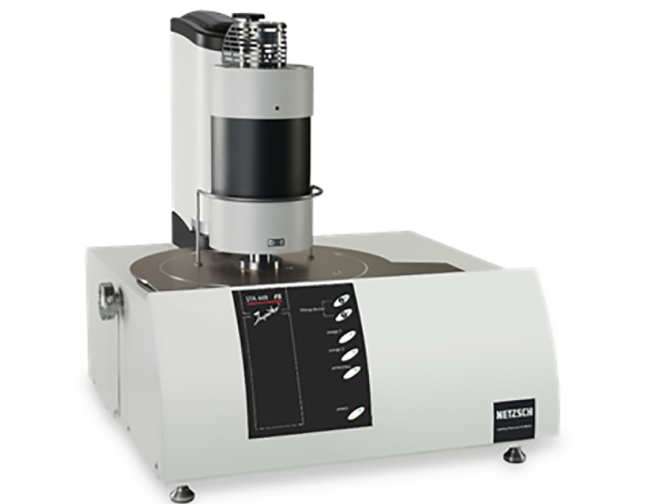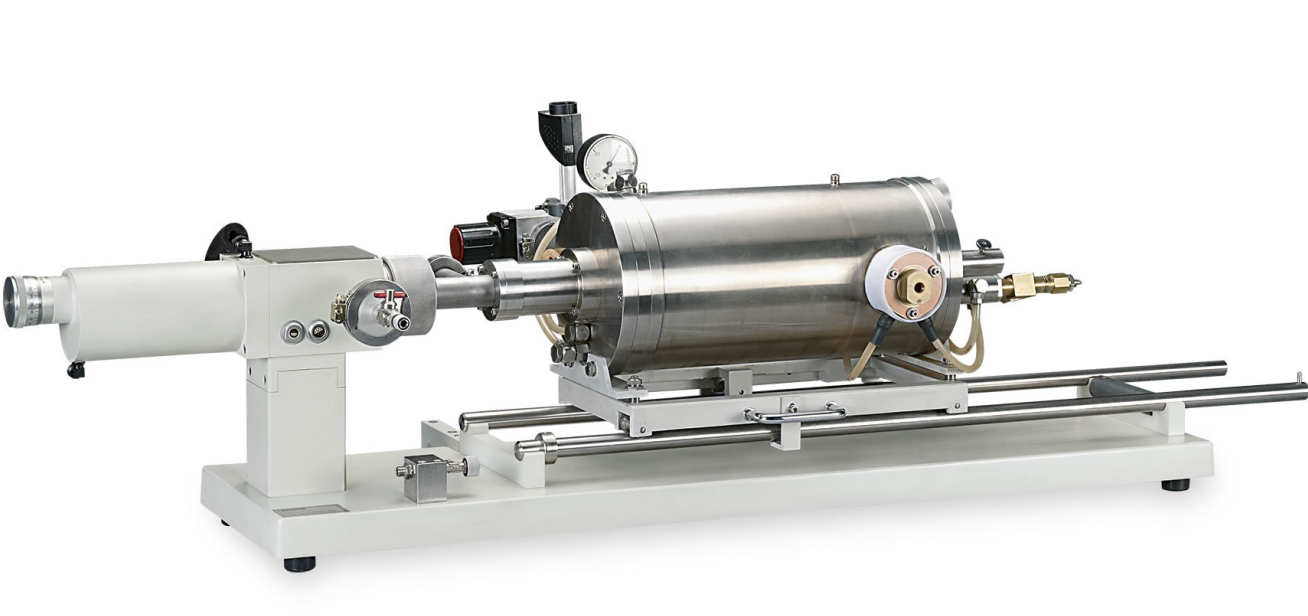The behaviour of materials as a function of temperature is investigated in the Thermal Analysis facility, where the major Thermal Analysis techniques involving the measurement of mass, temperature, heat flow and dimensions are available. With the exception of dilatometry, where a solid specimen is required, typical samples need only be a few mg and can be in bulk, powder or liquid form.
Netzsch 'Jupiter' STA449C and F5 simultaneous DSC/TGA instruments

These instruments conduct both Differential Scanning Calorimetry (DSC) and Thermogravimetric Analysis (TGA), simultaneously, over the temperature range of 25°C to 1500°C. This enables the investigation of processes that involve a gas, and therefore result in a mass change, such as de-hydration, decomposition, oxidation/reduction, thermal stability etc., as well as structural processes such as phase transitions, glass transitions, changes of state and crystallisation which have no change in mass.

Netzsch 402E Dilatometer
Changes in the dimensions of a specimen are detected by a transducer and these changes are then measured as a function of temperature during a controlled temperature program, up to a maximum of 1500°C.
Dilatometry is commonly used to determine the coefficient of linear thermal expansion of bulk materials and also to investigate phase transitions, glass transitions and for sintering studies.
The Department also houses the high temperature thermal analysis facility of the Centre for Advanced Structural Ceramics (CASC). This facility is equipped with a DTA/TGA instrument and a Laserflash apparatus for thermal diffusivity and thermal conductivity, both capable of measurements up to 2000°C, as well as a dilatometer up to 2400°C.
Thermal Analysis help and support
People list widget
-
Professor Stephen Skinner
/prod01/channel_3/media/migration/faculty-of-engineering/Dr-Stephen-Skinner--(Nov-2013)--tojpeg_1500386566550_x4.jpg)
Personal details
Professor Stephen Skinner Academic Lead, Thermal AnalysisSend email+44 (0)20 7594 6782
Location
Department of Materials
Royal School of Mines
Second Floor, 2.06Support with
Academic research in Thermal Analysis
-
Mr Garry Stakalls
/prod01/channel_3/media/migration/faculty-of-engineering/Garry-Stakalls--tojpeg_1500386997433_x4.jpg)
Location
Department of Materials
Royal School of Mines
Lower Ground Floor, LG03Support with
CASC facilities